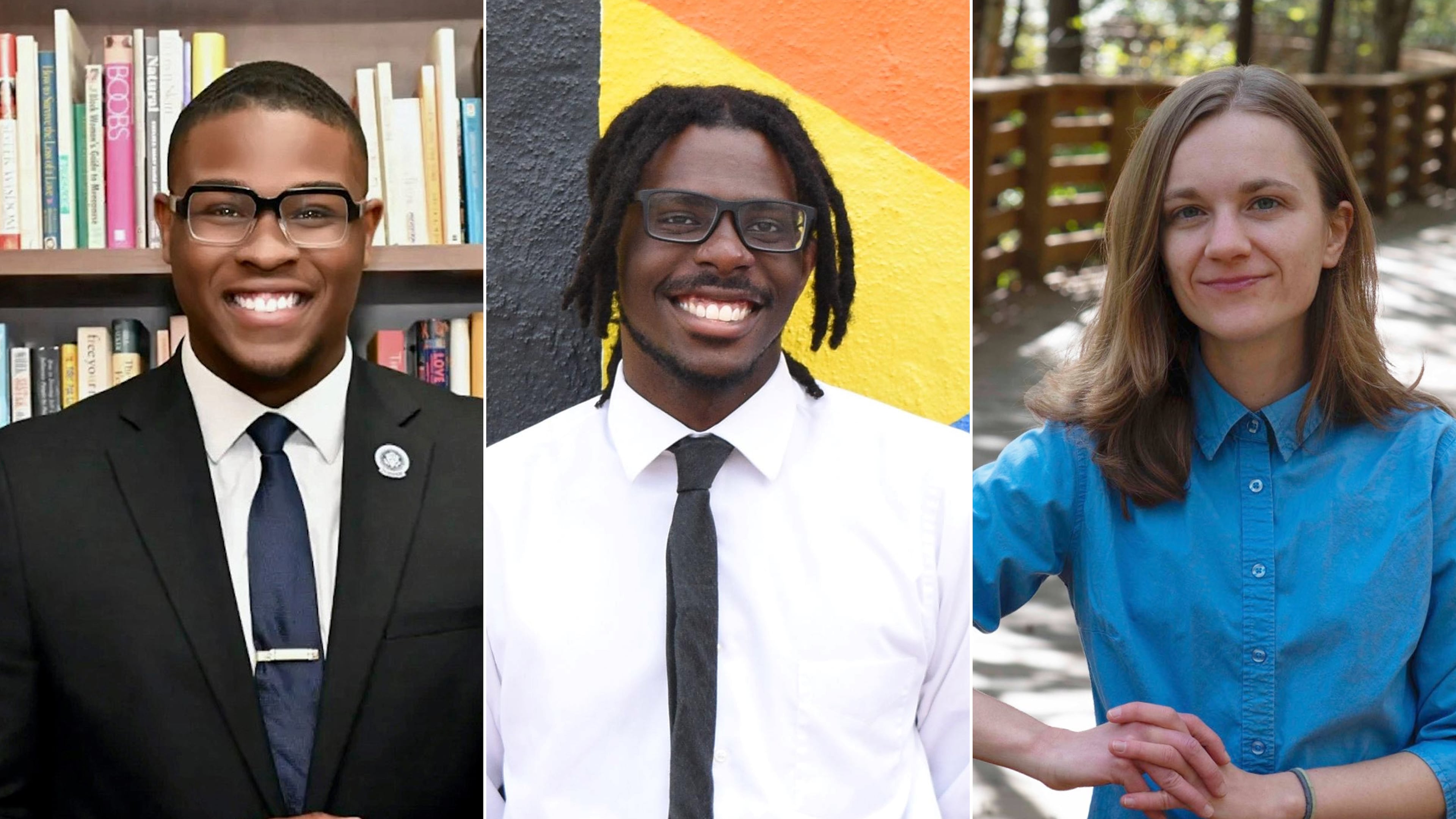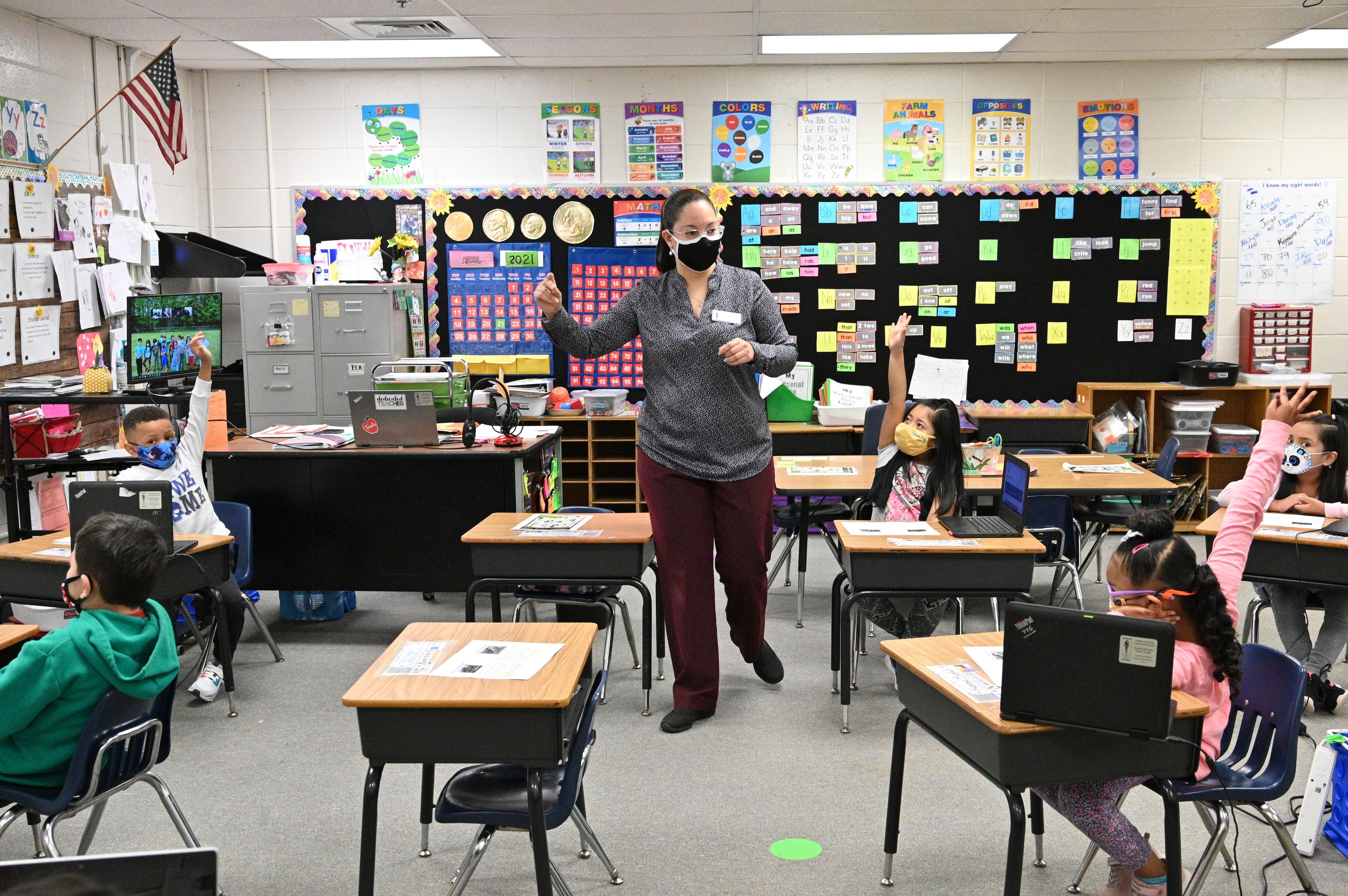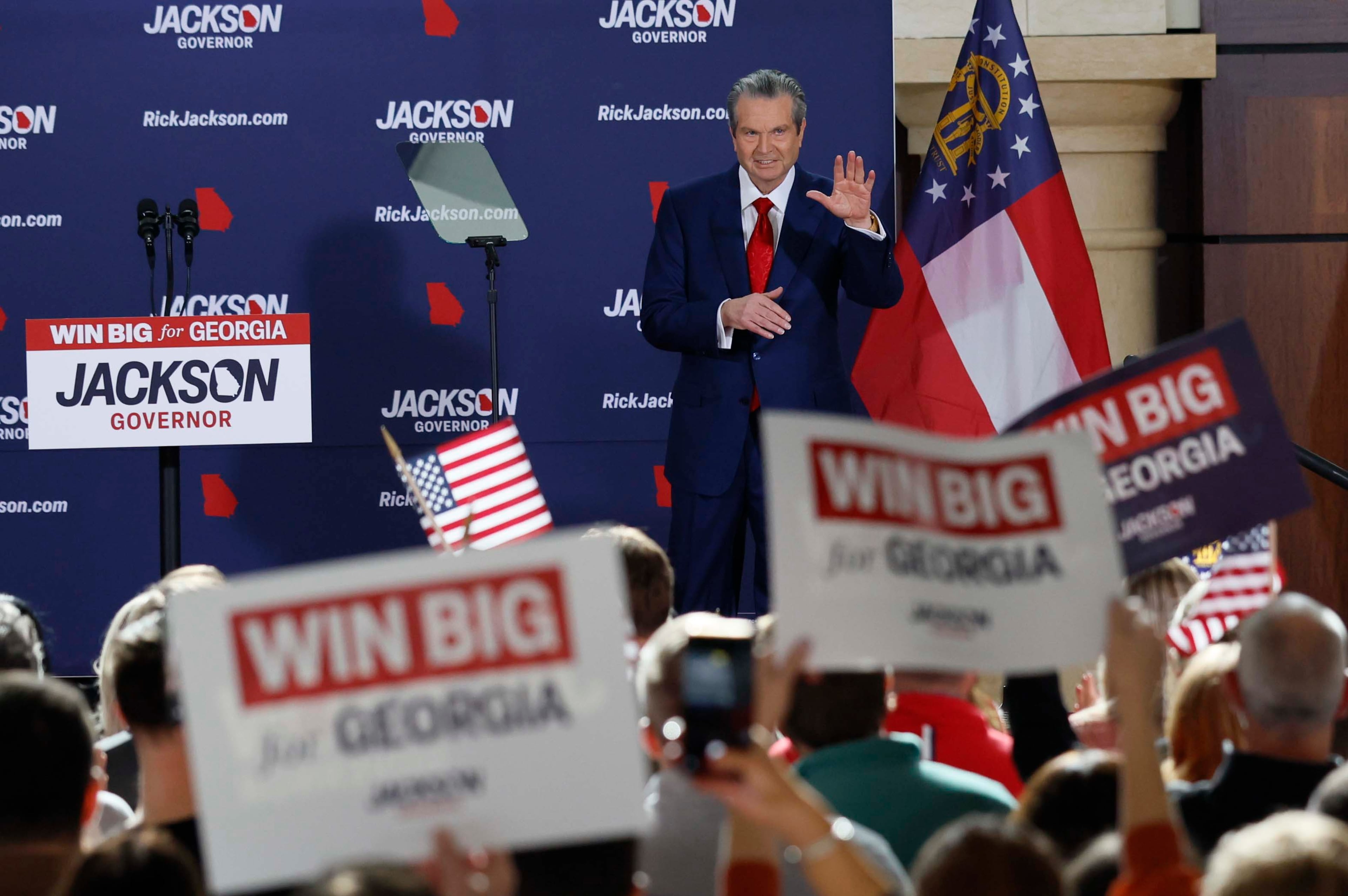Is the recent youth movement the Democrats’ future?

My wife’s trainer was excited to hear I was writing a story that included the 22-year-old who upset the Stockbridge mayor in the recent election.
Her trainer is a youngish Stockbridge resident and likes what he’s seeing.
“They should have an age limit on politicians,” he declared. “You hit 50 and you’re out.”
I was chopping wood outside our home at the time and noted that I’m 67 and not dead yet, pointing to about a face cord of firewood I had just chopped.
But he has a point: There’s a geezer logjam in politics and those at the bottom of the actuarial table are pushing their way up.
Recent municipal elections in metro Atlanta saw encouraging developments from wet-behind-the-ears candidates.
— You had Jayden Williams, age 22 and still at Clark Atlanta University studying political science, beating 68-year-old incumbent Mayor Anthony Ford. Ford was the city’s first Black mayor and helped stave off a de-annexation effort that would have gutted Stockbridge. Still, its voters were itching for a change.
— There was Sam Foster, a 24-year-old Black man who came within 87 votes (more than 13,000 were cast) of beating Marietta’s four-term Mayor Steve “Thunder” Tumlin, 78, an “Old Marietta” fixture and former Republican legislator. Foster would have been Marietta’s first Black mayor.
— Or Kelsea Bond, 32, the Democratic Socialist who earned a seat on Atlanta’s City Council in a landslide, getting 64% of the vote in a five-candidate race. Bond carried the day the old-fashioned way, by knocking on 35,000 doors.
— And, finally, there was Rohit Malhotra, who’s a bit long in the tooth to be included in this sampling. He’s 39. The first-time candidate/policy wonk lost a close one to Marci Collier Overstreet in the race for Atlanta City Council President.

Overstreet hails from Southwest Atlanta, the traditional Black Democratic hub of the city, and had the backing of Mayor Andre Dickens and most of the City Council. But she still needed big support from conservative-leaning Buckhead to beat back Malhotra’s challenge.
Malhotra did what the other previously mentioned candidates did. He mobilized legions of enthusiastic volunteers to knock on doors. He did well in the city’s east side and in central districts where there are newer, more progressive, residents.
Each election tells us something about the mood of an almost schizophrenic American electorate that often swings wildly in each election cycle.
After Donald Trump won last year, there was a cry among many, myself included, that Dems had gone too far whacky left, that they had lost the middle and needed to get it back.
Others, further to the left, argued Dems had grown lame and had not gone far enough.
So what do the recent showings portend?
It shows voters want some kind of change. Now, to be sure, it’s not like a revolution occurring. Atlanta City Council incumbents who ran again all did well. But there are still a couple races where Democratic Socialist of America-recommended candidates made it to the runoffs, as well as two DSA-backed contenders in the school board races.
(Democratic Socialist recommended does not mean the candidates are actual democratic socialists, as are Kelsea Bond, New York Mayor-elect Zohran Mamdani and Bernie Sanders.)
Bond, who is white and no relation to longtime Councilman Michael Julian Bond, said “socialist” is no longer political poison: “Republicans have used the term to fearmonger against regular Democrats so much that it just doesn’t register anymore.”

I noted that the district Bond won — which includes Inman Park, Virginia Highlands and Midtown — was progressive, but I didn’t think it had gone full-blown lefty.
Still, the area has changed. Thousands of apartments have been built in Midtown and about half those in District 2 are now renters, often young, in pricey units.
Bond, who’s spent years “apartment surfing,” knows the drill, saying rents are exorbitant and young people are hurting financially. So “affordability was the big issue. Sam (Foster, the Marietta guy), Rohit and I ran on the cost of living and the cost of housing.”
The number of those under 30 years old voting almost doubled in District 2, Bond said, adding “this might be a sample of what Atlanta will become as millennials and Zoomers become a larger part of the voting.”
Foster agreed. “People are looking for change, especially when everyone seems stuck in gridlock.”
The 20-something’s septuagenarian opponent didn’t take heed, Foster said, until the end of September, when campaign finance reports showed Foster outraised Tumlin four-to-one.

Malhotra said the number of 25- to 29-year-olds voting in Atlanta tripled from the last election and those age 30 to 34 doubled. But those over 40 saw small gains.
“There’s no question there’s been a bump,” he noted. “At a certain point in time, a new guard of leadership is needed. It’s telling what people are asking for in their leadership. I think they are asking for a new generation of thinking; they’re looking at the issue of affordability.”
I called Georgia Democratic chairman Charlie Bailey, who’s coming off the high of his party winning two races for the Public Service Commission this month — the first two statewide seats won by the Dems in a generation.
He didn’t want to bite on the premise of the youngsters taking over, probably trying to avoid any generational divide.
He talked about the “big tent” and needing to hammer home “Republican betrayal of working people.”
“Actually, making the American dream attainable, that’s what binds Democrats of all stripes and ages together,” he said.
Democrats may be dreaming up a new reality.



